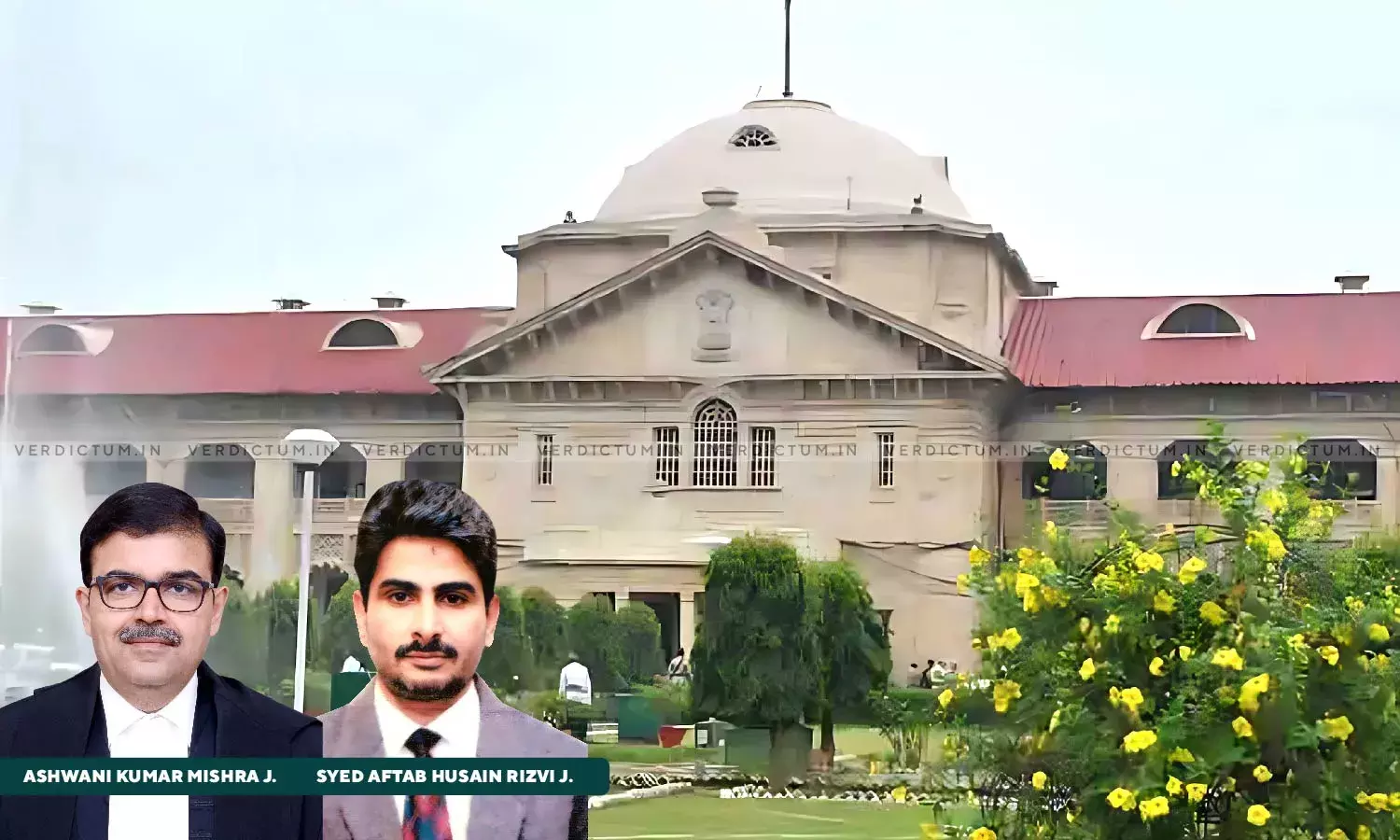'False Implication Can't Be Ruled Out': Allahabad HC Acquits Three Men In 1999 Rape & Murder Case

The Allahabad High Court has acquitted three men in 1999 rape and murder case on account that it is not proved that the accused persons are the real culprits and that their false Implication cannot be ruled out.
The Court was deciding a batch of two appeals filed by the accused persons (appellants) who were convicted by the Trial Court under Sections 376(2)(g), 302, and 34 of the Indian Penal Code (IPC) and sentenced to imprisonment of 10 years with a fine of Rs. 5,000/-.
A Division Bench comprising Justice Ashwani Kumar Mishra and Justice Syed Aftab Husain Rizvi observed, “From the analysis of evidence on record, it is clear that the sole testimony of informant P.W.-1, who is a chance witness, is not inspiring and trustworthy. There are serious discrepancies, which makes it highly doubtful that he has seen the occurrence. No doubt that the victim has been sexually assaulted and was strangled to death but it is not proved that appellants-accused are the real culprits and they have committed the offence.”
Advocates Udai Karan Saxena, Sanjeev Kumar Singh, and B.N. Singh appeared on behalf of the appellants.
Brief Facts -
In the year 1999, the 13-year-old daughter of informant had gone to collect the grass with and at about 5 P.M., the informant came near the Arhar field to collect the grass cut by his father where he heard the screams of his daughter from the said field. He along with his father and others saw that the accused persons were strangulating her daughter by tying her neck with a bed-sheet. On exhortation, the accused ran away. When the informant reached near the victim, she had died and the accused had also committed sexual assault on her because her private part was bleeding and semen spots were present on the clothes.
The Investigating Officer inspected the place of occurrence and prepared the site plan. The case was committed to the Court of Sessions. Charges under Section 376(2)(g) I.P.C. and Section 302 read with Section 34 I.P.C. were framed against appellants-accused who denied the charges and claimed trial. The Trial Court, after hearing the counsels for both the parties by the judgement and order, held the appellants-accused guilty and sentenced them. Hence, the matter was before the High Court.
The High Court in view of the facts and circumstances of the case noted, “The appellants-accused have taken specific defence that on the date of incident Munni Devi wife of Raj Bahadur has died and the appellants Surjeet and Babloo are related with Raj Bahadur. The appellants-accused were present in the cremation of Munni Devi, which was held in the evening (between 4 to 5:30 P.M.), the time of the incident as alleged by the prosecution. Informant P.W.-1 has accepted this fact that Raj Bahadur lives in his village and accused Babloo is his cousin. But the witness has feigned ignorance about the fact that someone of the family of the accused has died on the fateful day.”
The Court said that the Trial Court placed reliance on the ocular testimony of informant without appreciating it in right perspective and failed to notice the serious discrepancies in the ocular testimony of informant, who is also a chance witness and has erred in relying on it.
“He has also denied that Surjeet, Babloo and Arvind are of one family and Munni Devi is the wife of Raj Bahadur, aunt of Surjeet and maternal aunt (mami) of Arvind. Babu P.W.-2, who is relative of the informant and other prosecution witness Pramod P.W.-3, in their cross examination by the defence have admitted this fact that Munni Devi wife of Raj Bahadur has died on the date of the incident and the accused persons were present in her cremation which was conducted in the evening”, also noted the Court.
The Court further observed that the finding of guilt returned by the Trial Court on the basis of the informant’s testimony is not sustainable.
Accordingly, the High Court set aside the conviction of the appellants.
Cause Title- Arvind Kumar and Another v. State of U.P. (Neutral Citation: 2023:AHC:203297-DB)


